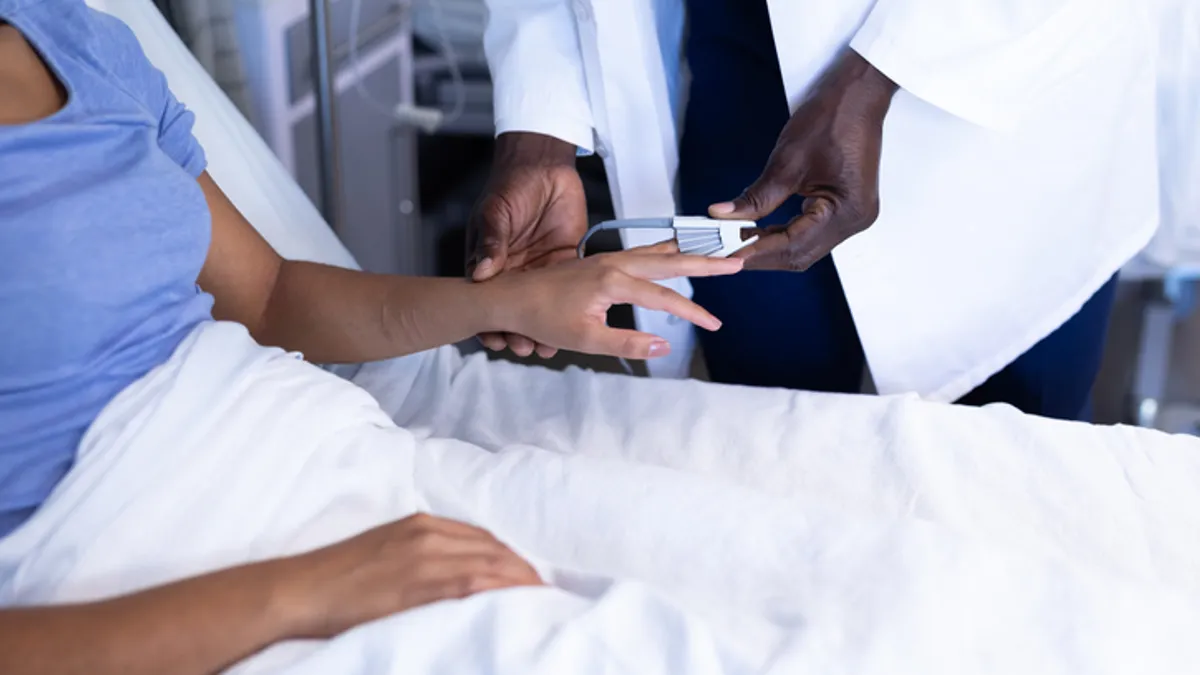Amid ongoing concerns that pulse oximeters can give faulty readings for dark-skinned patients, the FDA is convening a panel of experts on November 1 to look at problems with the meters, small devices placed on a patient’s finger that use light to measure pulse and blood oxygen levels.
The convening of the specialized panel will “discuss ongoing concerns that the pulse oximeters may be less accurate in individuals with darker skin pigmentations,” the FDA said in a statement announcing the meeting.
The alarm over discrepancies between lighter- and darker-skinned patients was raised in a letter to the New England Journal of Medicine in December, 2020, that related the findings of a study by physicians at the University of Michigan Medical School. That study found that many Black patients whose pulse oximeter readings showed healthy oxygen levels actually had dangerously low amounts of oxygen in their blood when they were tested with oxygen saturation by drawing arterial blood at the same time.
“In two large cohorts, Black patients had nearly three times the frequency of occult hypoxemia that was not detected by pulse oximetry as White patients,” the authors wrote. “Given the widespread use of pulse oximetry for medical decision making, these findings have some major implications, especially during the current coronavirus disease 2019 (Covid-19) pandemic. Our results suggest that reliance on pulse oximetry to triage patients and adjust supplemental oxygen levels may place Black patients at increased risk for hypoxemia.”
The FDA cited the report of the Michigan study, which the Journal ran under the headline “Racial Bias in Pulse Oximetry Measurement.”
The FDA noted its warning from 2021 that “although pulse oximetry is useful for estimating blood oxygen levels, pulse oximeters have limitations and a risk of inaccuracy under certain circumstances that should be considered.” The agency warned patients who use over-the-counter oximeters to monitor conditions such as Covid-19, to “pay attention to all signs and symptoms of their condition.” Over-the-counter oximeters are not regulated by the FDA, and the agency warned that the oxygen reading “should always be considered an estimate of oxygen saturation.”
The virtual meeting of the CDRH Anesthesiology and Respiratory Therapy Devices Panel of the Medical Devices Advisory Committee will take place on November 1, 2022, from 9 a.m. to 6 p.m. Eastern Time. Details are in the Federal Register. The committee will also discuss other factors that may affect pulse oximeter accuracy and performance, and other regulatory aspects of the meters, the FDA said.











